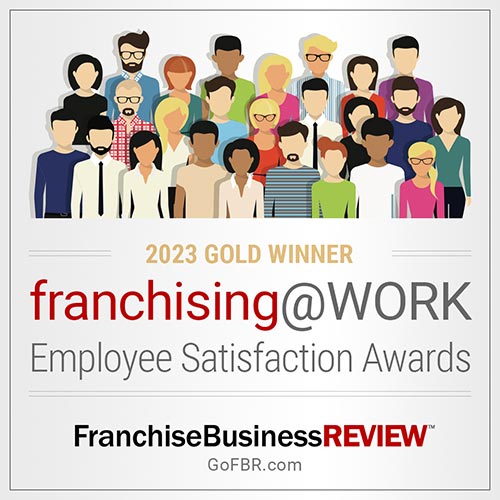A Curious Jane attitudinal study shows work-life balance is one of the top considerations why people choose franchising.
As a marketing agency that handles franchise development for many clients, we had ideas about what potential franchisees considered when deciding to open a small business, but we didn’t want to assume we were right. So, we partnered with a research firm to conduct a scientific study on the attitudes, goals and challenges that shape franchise candidates’ decisions to invest in a franchise business (and which one).
More than 500 franchisees from a half-dozen franchises participated, giving the study a 95% confidence level.
Over the next few months, we’ll share some of our findings in this blog, on our social media platforms and elsewhere. We’ll touch on topics ranging from how long it took potential franchisees to decide to buy a franchise, how their experiences as customers played into candidates’ decisions to buy and what millennials expect from franchisors.
Today, we’ll explore why work-life balance is a huge factor in choosing to buy a franchise.
Work-Life Balance Is Key
The research shows that franchise business owners are largely happy with their work and their franchisors. Their biggest concerns center around work-life balance, time constraints and hiring.
Some key findings:
- 56% of respondents said their biggest concern before owning a franchise was work-life balance. The second and third biggest concerns were ongoing royalty fees (48%) and hiring and retaining employees (38%).
- 73% said they left their last job to open a franchise so they would have more control over their career path, 49% were seeking financial independence and 47% wanted to earn more income.
- 51% rated their experience with their franchisor as excellent or very good.
- When asked the Top 5 most valuable benefits of owning a franchise, 45% cited autonomy, 37% said franchisor support, 36% said a lower risk to starting a business, 36% said self-fulfillment, and 32% said community influence/having an impact where they live.
- 50% said they would hesitate to open another location because of the time requirements, and 48% would hesitate because they wanted to spend more time with their family.
Franchising is attractive because it offers work-life balance and control over a person’s work life and financial future. The franchisees who participated in the study opened a franchise business partly because they wanted to make more money. Although they understand that additional locations could yield a higher income, they would rather spend more time with their family than put time into launching another business.
Impact on Franchise Development
How can franchise development teams use this insight to allay candidates’ concerns?
Just as you would communicate what your corporate team is doing to support recruitment efforts to candidates worried about staffing, you need to explain how your franchise’s business model offers a flexible schedule to candidates worried about work-life balance.
Additionally, when you encourage candidates to talk to other franchisees as part of the validation process, make sure they speak with franchisees who run a successful business and feel like they are achieving balance, preferably in a similar family circumstance. For example, encourage parents of young children to talk with other parents of young children, and encourage single parents to talk with other single parents.
Semantics matter, too. Instead of repeating your franchise brand offers a “proven business model,” you might add that it offers a “business model that supports work-life balance.”
Finally, if you have a rock star franchise business owner who would make a great multi-unit owner if they could just get past the fear that more locations will upset their work-life balance, address that head-on by explaining how your business model is built to scale. Although it’s reasonable to expect the launching of additional locations to take more of an owner’s time and focus in the short term, a second location should not double a franchisee’s time commitment if the business is truly scalable.
If franchisors can demonstrate how franchisees can add locations – and grow their businesses and incomes – without giving up too much family or personal time, franchisees may be more eager to expand.










